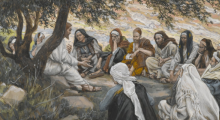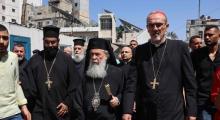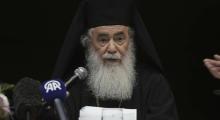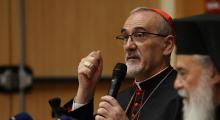Issued by the Catholic Center for Studies and Media - Jordan. Editor-in-chief Fr. Rif'at Bader - موقع أبونا abouna.org
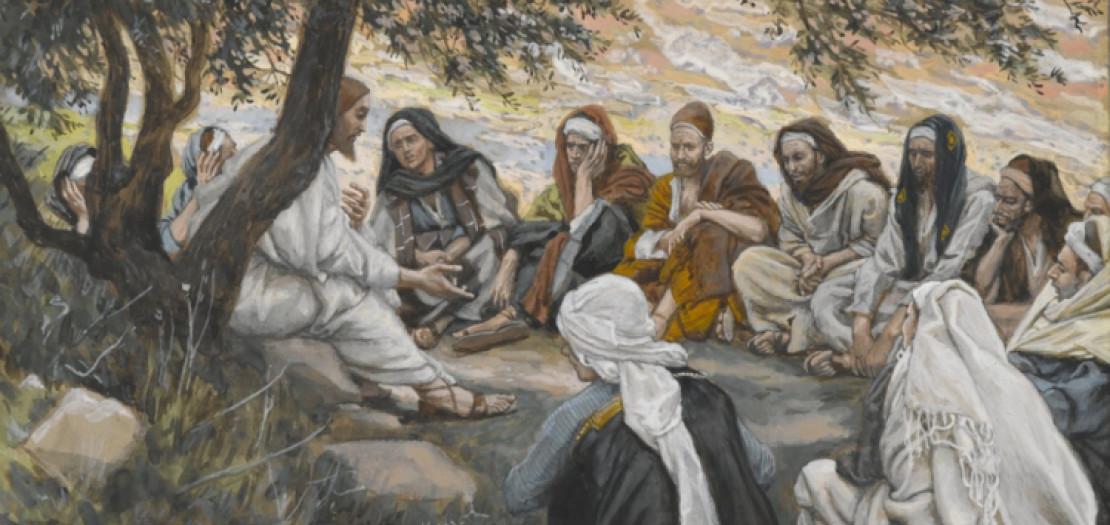
Following is the text of the meditation by His Beatitude Cardinal Pierbattiasta Pizzaballa, Latin Patriarch of Jerusalem, on the 17th Sunday of Ordinary time, dated July 27, 2025:
When the disciples ask Jesus to teach them to pray (“Lord, teach us to pray, as John also taught his disciples”, (Luke 11:1) Jesus does not simply respond by handing them the Lord’s Prayer. His answer is an articulated response, like a journey that unfolds in three moments.
And that is the first element we can appreciate in this passage from today’s Gospel. (Luke 11:1-13) For prayer is not simply a formula, but a path, a journey.
And it is also a challenging and complex path: the parable of the importunate friend (Luke 11:5-8) as well as the words that follow (Luke 11:9-13) are words that are not easy to understand, to say precisely that prayer is not something automatic, but a path that must be patiently travelled.
So at the center of the passage is the parable. What connects the parable with the preceding prayer of the Lord’s Prayer is the bread.
The petition for bread in the Lord’s Prayer is the central petition (“give us each day our daily bread”. (Luke 11:3) The request for bread is also central to the parable, where it all begins with someone going to his friend and asking him for three loaves (“If any of you has a friend and goes to him at midnight and says, "Friend, lend me three loaves...” (Luke 11:5)
First of all, there is a friend who receives a visit from his friend in the middle of the night, but has no bread to offer him. The parable demands attention to the subtexts hidden within it. It would be reasonable for the friend who has no bread to offer because it is night, to postpone the search for bread until the next day. But the parable also tells us that the one who is asking for bread, has anyway a strong friend, a friend who is so sure that he certainly will certainly give bread if asked. He is such a close friend that he is not afraid to disturb him, even if it is in the middle of the night.
So this is prayer.
Prayer is a friend who comes into your home unexpectedly and at an inappropriate time and asks you for hospitality. Prayer is opening the door to him and getting involved in discomfort, just like the Samaritan did in the parable we heard earlier. Praying means experiencing that we do not have what the other person is asking for, that we do not have the bread of life that can satisfy his hunger. That is why we must ask the Father with the prayer that Jesus taught us.
But prayer also means not stopping, not sending your friend home, not dismissing him by justifying your own lack of bread. Prayer means first and foremost having a Father, to whom we can go at night to complain about the lack of bread for ourselves and our friends. We can keep the door open to friends who come to our house at any hour, because we have a Father to whom we can go.
The Lord does indeed have the bread we ask for, but he does not give it to us immediately.
He only gives it to those who insist, to those who do not give in, to those who trust to the end (“I tell you, even if he does not get up to give it to you because you are his friends, yet because of your insistence he will get up and give you as much as you need”. (Luke 11:8)
That is, for those who deeply believe in friendship with the Father, for those who can stand by him, for those who know that God does not disappoint.
Hence the invitation to ask, to seek and to knock (“Ask and it will be given to you, seek and you will find, knock and it will be opened to you”, (Luke 11:9) but with the confidence of one who believes that God is a Father who will give good things to his children much more than an earthly father, with the boldness of one who knows how to ask for everything he can give (“If you then, who are evil, know how to give good things to your children, how much more will your Father in heaven give the Holy Spirit to those who ask him!” (Luke 11:13)
+Pierbattista



